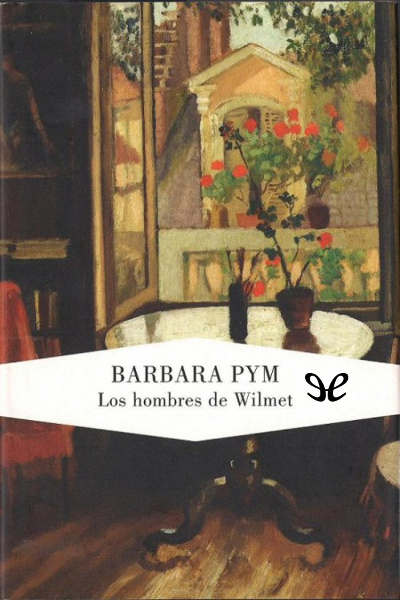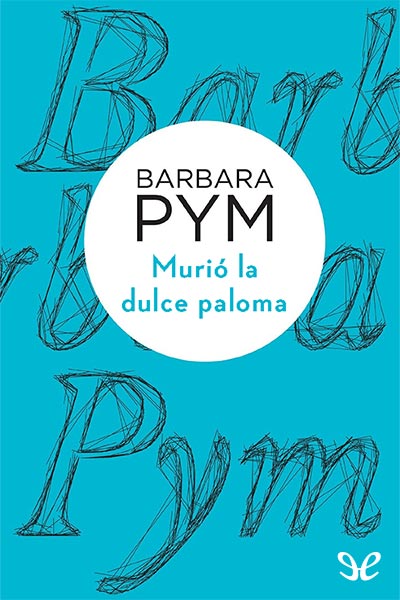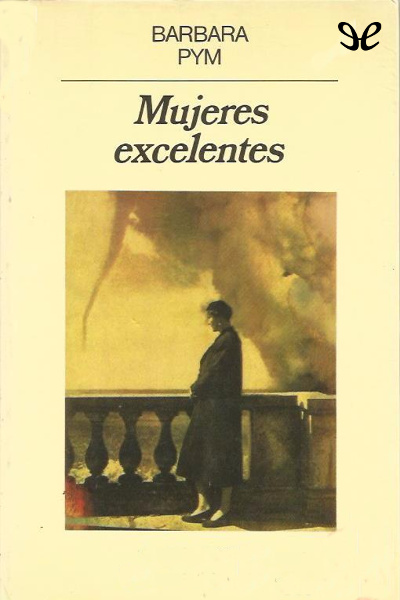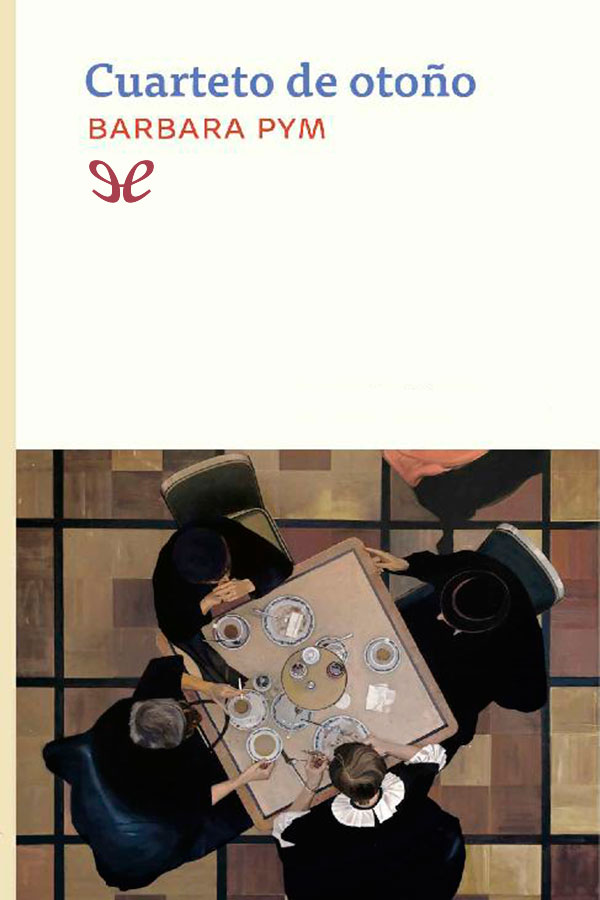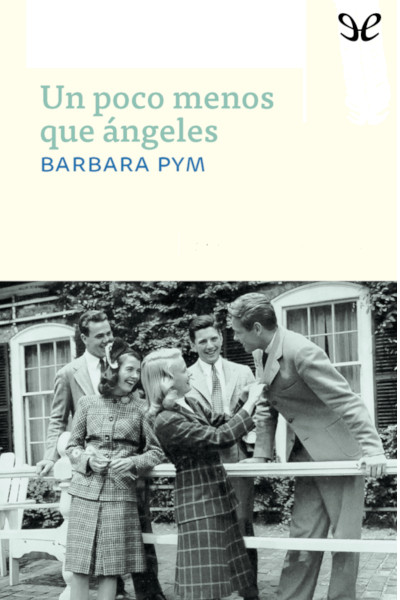oleebook.com
Un sacco di benedizioni de Barbara Pym
de Barbara Pym - Género: Italian
Sinopsis
I romanzi di Barbara Pym formano un mosaico che racconta ununica storia mille volte ripetuta.
In questo caso, Wilmet, una donna graziosa e piena di buone intenzioni, felicemente sposata e un po annoiata dalla monotona felicità del suo matrimonio, incontra alla funzione domenicale della vicina parrocchia, Piers Longridge, fratello di una sua cara amica, ancora scapolo e molto seducente. Piers non si sposa «perché le donne al giorno doggi hanno troppe pretese
» come dice occhieggiando Wilmet con aria provocante.
A questo incontro ne seguiranno altri, cenette, passeggiate lungo il Tamigi e molte confidenze.
Intanto alla canonica Padre Thames e Padre Bode sono felicemente accuditi da un ex funzionario statale, il caro Wilfred Bason, cuoco eccellente, non solo, e grande estimatore della preziosa collezione di oggetti artistici di Padre Thames. Un giorno non sa resistere alla tentazione di mettersi in tasca un bellissimo uovo di Fabergé, creando lo scompiglio tra i benpensanti amici e vicini. Un altro scompiglio si crea a causa di ben due inaspettati matrimoni, inaspettati ma non per questo meno romantici.
Alla fine, perfino Wilmet si accorge che anche suo marito è più romantico di quanto lei si immaginasse e il lieto fine rischiara lorizzonte.
Un classico di Barbara Pym nella sua forma migliore!
Libros Recomendados - Relacionados
Reseñas Varias sobre este libro
Jane Austen set in 1950s London
This reminded me of Emma a bit. Wilmet is a pretty, self satisfied, elegant lady who has a lot of free time since her husband takes care of her. She gets into a spot of bother, flirting with her best friend's husband and brother. Not really understanding men too well, she reads all kinds of things into friendly interest. Self-involved, she hardly noticed that around her there are three, unly (to her), couples being formed. She also ignores her husband to both their detriment, but all's well that ends well and this story resolves itself with a dash of humor which is always the right thing to add to the mix.75 s1 comment Cynthia633 43
Its really a shame Pym isnt read and talked about more often. Her writing evokes Anthony Trollope with his insights into peoples hearts crossed with a dollop of Jane Austens humor. Pym writes about middle class people going about their day to day activities just as Trollope and Austen did and just them she makes the characters fascinating.
The book is set in the 50s and told from the viewpoint of a 29 year old childless woman named Wilmet as she tries to navigate growing older. (I suppose 29 was considered differently then.) Though shes happy with her husband whom she met in Italy while serving as a WREN and he was a dashing soldier she still s the attention of other men. She runs into them at innocuous places such as church and while visiting friends. Pyms humor is understated. There are no mean undertones. She touches on homey things knitting, helping a friend choose a new dress or hairdo, nights at home with her husband and mother in law, romantic memories of the war years and Italy, church gossip, and even listening to John Rutter on the radio directing Christmas carols sung by the Kings Cambridge choir. She invokes past authors such as Wilde and Woolf and Trollope. I hope Im not giving the impression that this is a bit of fluff writing because its not. Its immensely complex writing but I also keep wanting to describe it as delicate. The best part of her writing is having a front row seat at a cozy chat between friends where you get to see the subtext.
read
11-2-10
reread
11-7-12 with otherlit groupbooks-read-in-2010 books-read-in-2012 re-reads-201252 s Roman Clodia2,593 3,430
I had as much as Mary had - there was no reason why my own life should not be a glass of blessings too. Perhaps it always had been without my realizing it.
I'm not the first to say this but Pym really does seem to be channeling Jane Austen's Emma in this book, though it's disguised and the setting is typical Pym-world of vicars and tea parties.
The London setting recalls Excellent Women only Wilmet is no Mildred: she's self-absorbed and a bit smug, she knows her looks and her elegant clothes make her attractive to men, and she has no qualms about being judgemental about women the 'dim and mousy' Mary Beamish. Only Wilmet's own marriage has become stale and her crush on the glamorous but difficult Piers gives her something to think about in her leisured life - until her own version of Emma's Box Hill experience brings her face to face with her own true self.
Wilmet's growth is subtly done and it's quite a feat to make her flawed and so blind to her own privilege and solipsism while still keeping her sympathetic. Pym shores up her main character with a varied comic cast, from the celibate churchmen to the wonderful Sybil. There are nods back to characters in the earlier books - Rocky Napier, Archbishop Hoccleve, Prudence who doesn't appear but plays an important 'Prudence' role - and Wilmet realises her own blindness when not one, not two, but three relationships are formed under her eyes without her being aware of them.
Unusually, I think, for Pym this is a first person narrative and that works well to foreground the differences between what Wilmet thinks or tells herself and how we judge both other characters and her responses to them. Pym's technique does precisely what we need it to do.
For me, this combines all the humour and comfort of early Pym with a more serious plot as Wilmet matures and becomes a nicer, more compassionate person - that this is about internal changes rather than big dramatic happenings makes this all the more satisfying. From about halfway through this becomes almost impossible to put down - it's charming and delightful but has a kind of Austenesque moral development that I loved. 30 s2 comments Sketchbook684 234
Anglican flirtations. Sensitive, specialized.
"I never know what it is that Christians want when they pray for the sick," said Sybil. "Death is greatly to be desired for believers, and yet they never to pray for that." Exactly.
Heavenly socials: I bet Joan of Arc is marvelous at bridge. Who else is around? See anyone you know ?29 s Shawn Mooney (Shawn The Book Maniac)688 677
This may end up being my favorite Pym novel. (Im reading them in sequence, and this one at least ties with her debut, Some Tame Gazelle, in my affections.) Un most Pym protagonists, Wilmet is married. She has a roving eye both in the classic sense but more broadly in the way she gazes and gawks, missing some important obvious things but keenly picking up on much else, slaying the reader with hilarious, often deliciously wicked observations.
My BookTube review: https://youtu.be/4lzhOmwyXU0read-in-201726 s1 comment Piyangie541 594
A Glass of Blessings is, to me, a better novel by Barbara Pym. After my disappointment in Jane and Prudence, I was cautious in selecting what to read from her repertoire. I'm glad about my selection, for this was an enjoyable novel - a comfort read.
Barbara Pym doesn't write stories as we expect them - ones with a steady coherent flow. Instead, she writes about the daily lives of her characters and works on their life-changing events and incidents. When one understands that, it is easy to appreciate her work. Pym is not bent on any commentary on society and its convention. Rather, she is focused on eliciting the humour of actions of everyday human life irrespective of gender. Certain things may be dated, but one cannot deny that some of the prejudices that dictated the society of her day still dictate the society of our time. To that extent, Pym's characters are relatable to us.
In A Glass of Blessings, the characters Pym has created were diverse and interesting. The protagonist and narrator, Wilmet Forsyth, is perhaps the most interesting with her naive and ignorant views of the world. Married young, living in the house of her mother-in-law with her somewhat dull husband, and having no children, she has all the time to spare. And her life seems to her unproductive and boring. In her efforts to break from the monotonous boring existence, she embarks on various missions which are brought out humorously by Pym. Mind you, Pym is NOT laughing at the character; she is only portraying the consequence of looking for joy and contentment outside yourself, rather than finding it within. Wilmet, at the end of the novel, learns that lesson. Almost all the characters are portrayed quite well so that I was truly drawn to each one's story. I was extremely pleased by how Pym wound up each story of her characters at the end of the novel. It gave me quite a satisfactory feeling.
With this reading, I was able to see Barbara Pym as an author unveiled from the Austenian cloak. And I must say she has her own charisma which draws in the readers.
More of my can be found at http://piyangiejay.com/brittish-lit my-library21 s Lisa94 2 Read
Pym's books are literary comfort food; sweet, sad tales of real--ordinary--people. Impoverished gentlewomen, spinsters, repressed bachelors, pensioners and altar-society matrons; unfailingly soothing.19 s Dan470 4
Can a Jean Rhys stan and an Anita Brookner geriatric fanboy find happiness with Barbara Pym? If its Pyms A Glass of Blessings, the answer is not so much.
Ewww. . . that ending. It brings to mind an artisan baker who inexplicably adds an extra cup of sugar to a lemon drizzle cake: the sugar pools at one end of the cake and the last slice is cloyingly, almost inedibly sweet. . . With the final chapter of A Glass of Blessings, Pym manages to wreck an otherwise good novel. Go ahead, Wilmet, just drag that louche Piers Longridge to bed with you. Piers, whats with you and Keith, your handsome, knitting pattern model roomie? And Wilmet yes you, Mrs. Forsyth could you really be that obtuse as to not realize that your best friends husband as well as Piers are propositioning you?
A Glass of Blessings has many strongpoints. Pyms prose is usually immaculate and transparently clear, with unnecessary punctuation, fancy words, and useless adjectives omitted. Its an immensely readable novel. The first person voice of Wilmet Forsyth is amusing and wacky. Pym skewers Wilmet as remarkably, perhaps willingly naïve and shockingly entitled, yet Wilmet nonetheless emerges as a likable ditz. In a gentler time, Wilmets life, filled as it is with privilege and an unlimited future might be entrancing or charming. Pym deftly portrays Wilmets fellow parishioners, her mother-in-law, her husband, and the wonderful Piers and Keith. But even Pyms lovely writing cant save A Glass of Blessings from its treacle.
3.5 stars. Give me Jean Rhys despair and Anita Brookners loneliness any day.16 s Irena Pasvinter330 71
This is the second book by Barbara Pym I've read, and once again I've enjoyed her writing. "A Glass of Blessings" feels even more Jane-Austen-writes-a-1950s-novel we even get a newly-married vicar "getting a living" at the end than "Excellent Women".
In "A Glass of Blessings" we get to experience the world of the British 50s through the limited perspective of Wilmet Forsyth, whose sheltered existence of idleness and privilege is tainted by emptiness and boredom. Wilfred really comes to life through the first person narration and Barbara Pym's writing genius -- as much as it's often rather annoying to be in her naïve and supercilious little head, she is neither dull nor unable (Jane Austen's Emma comes to mind). If life is a glass of blessings, as claims Wilmet's virtuous acquaintance, there is definitely a special place for Barbara Pym's quietly witty novels in this vessel.
I do prefer "Excellent Women" though. Wilfred's trials and tribulations seemed too petty to make me truly care about her.
Image credits: Wikimedia Commons, by Megalitmy-audio-books13 s Joy D2,279 259
Published in 1958, this is a delightful novel about a woman who is a little too pleased with herself. Protagonist Wilmet Forsyth is a thirty-something woman, married to a civil servant, living in a rural village in England. She is an attractive woman (and knows it). She is a little bored, so she flirts with a couple of men, and believes they are attracted to her. Her main activities are associated with her local Anglican church, interactions with the clergy, and hosting or attending dinners. The storyline follows a small group of characters interacting in their daily lives.
This is a low-key character driven novel that contains plenty of subtle humor. We spend most of the novel listening to the thoughts of the protagonist-narrator Wilmet, who eventually discovers something important about herself. It is a beautifully written novel. The author has a keen insight into human nature. It is a story about appreciating what we have in life rather than chasing after excitement. As I went along, I was enjoying it, but when I got to the end, I had an aha moment, much Wilmet. Highly recommended.
europe gridlock-selected literary-fiction ...more13 s Jonathan941 1,027
Wonderful, as always, particularly for the warm, kind and subtle queerness. The cast of obviously gay and not-so-obviously gay characters tells us much about Pyms humanity11 s Alexander Inglis75 8
Here was a totally unexpected -- and unexpectedly delightful -- read. Barbara Pym was hailed twice by the Times Literary Supplement as "the most underrated novelist of the century" -- that was 1977; she died three years later in 1980 at the age of 67 having published just 7 novels in her lifetime of which A Glass of Blessings was her fifth.
Set in 1950s London, this witty novel is told through the narration of the shallow and self-absorbed protagonist Wilmet Forsyth who, despite her flaws, begins to learn something about love and about herself. The characters are explored in everyday activities, many involving the church (no less than three priests are central to the evolving events), and the others part of Wilmet's family (including her mother-in-law who owns and rules their home) and friends. When by chance, she re-connects with a childhood friend, Piers Longridge, and imagines he is a secret admirer, her heart re-awakens after years of colourless genteel contentment.
For social historians, there are endless observations, not least the very sympathetic portrayal of one matter-of-factly homosexual couple, and the richly embedded role of the church in daily lives as a social, rather than religious, institutiton.
Since her death, Pym has been recognised by countless scholarly revisitations, including an official Barbara Pym Society.
A Glass of Blessings by Barbara Pym. Published in 1958; currently out of print although available in a Darknet Digital Edition.favorites gay-positive literary-fiction10 s Ali1,241 369
"Oh Wilmet, life is perfect now! I've got everything that I could possibly want. I keep thinking that it's a glass of blessings - life, I mean..."
"That comes from a poem by George Herbert, doesn't it?" I said. 'When God at first made man, Having a glass of blessings standing by ..."
"But don't forget that other line ... how when all the other blessing had been bestowed, rest lay in the bottom of the glass...
In A Glass of Blessings we are back in the familiar parochial territory that we first encountered in Some Tame Gazelle, Jane and Prudence and Excellent Women. Wilmet Forsyth is our narrator, in her early thirties; she is a nicely mannered well-dressed attender of high Anglican services. She lives in her mother-in-laws house with her husband Rodney in a respectable suburb of London. Not having really very much to do, Wilmet s to believe she is able to do good to others, accompanying her mother-in-law to The Settlement an institution of some unspecified charitable kind where the exceptionally good, but rather drab Mary Beamish is often to be found. However Wilmet is bored, her husband is slipping into comfortable middle-age a little fatter and balder than when she had first met him, with his job in The Ministry that he disappears to each day. Wilmet contents herself with the company of three local unmarried priests - helping with the search of a new housekeeper for the clergy house, introducing them to Bason who had previously worked at The Ministry with her husband a job Bason had proved unsuited for.
Now said Mr Bason moving us on a guide. I think we might take the merest peep in Father Thamess study. I expect you would to see that.
He had already opened the door before we could express any opinion and I crept forward rather guiltily as if expecting some kind of retribution to fall on me.
The first impression was of a rather crowded museum, for there seemed to be a great many objects arranged in glass-fronted cabinets and on the mantelpiece. The room was dominated by an enormous desk of some rich-looking wood. This rather surprised me, for I had not hitherto had the impression that Father Thames was the scholarly type of clergyman; though, on thinking it over, I supposed that every parish priest must have a large desk, if only to answer his correspondence and prepare his sermons.
Also providing a welcome distraction which starts to almost become a rather unsuitable infatuation is Piers Longridge the rather unsuccessful brother of Wilmets best friend Rowena. Piers works as a proof reader and teaches Portuguese at night classes that Wilmet and Sybil her mother-in-law decides to attend.
Wilmet is a able character although she seems quite vain, constantly examining herself and her motivations, she often sees herself as not being quite as good as she might be. Wilmet often fails to understand the people around her including her husband and especially Piers, her imagination really running away with itself at times. As the novel progresses Wilmet begins to learn something about love and her relationships with the people in her life, beginning to appreciate the friendship of Mary Beamish rather more than she had done previously. Sybil provides a lively contrast to her daughter-in-law living life to the full, springing a surprise of her own in the end and proving that she at least has a positive attitude to life and the living of it.
Readers of previous Pym novels will be delighted with the references to characters from Excellent Women and Jane and Prudence there is even a passing mention of Archbishop Hoccleve from Some Tame Gazelle. I was rather delighted that Wilmet and her friend Rowena had once nursed tender feelings for Rocky Napier. Pyms wonderfully dry humour and keen observation help to recreate this world that must now surely be gone forever if it ever really existed, yet it is a world I feel perfectly happy in.
9 s Laura416 26
Update Feb 2017: How did I give Barbara Pym 3 stars? All her books are 5 stars forever. I love them to pieces, even though I get confused about the characters mentioned across books. Wilmet's a darling ridiculous dear who tactfully leaves a lot unsaid.
---
Usually I Pyms heroines more than I did here; Wilmet seems less self-aware than Pyms usual, especially as a first person narrator. I simultaneously loved and hated the moment when Wilmet and her husband burst out laughing together in the horrid little restaurant; it seemed too pat, but is life really that after all? Loved the scene thats illustrated on the cover of the edition I read -- Wilmet entering the parish hall for the evening social gathering to meet Father Ransome. Reminded me of the hours spent in the fellowship hall of the church I grew up in (Protestant, though -- Christian Reformed). Definitely not my favourite Pym but shes such a reliable delight that one day I shall reread this, even though I've only given it three stars.
--
"'Won't you at least have a drink before you go?' Sybil asked. 'I'm sure you'll need it.'
"I refused, thinking that it might not mix very well with the refreshments I should get at the parish hall, and it occurred to me that one could perhaps classify different groups of circles of people according to drink. I myself seemed to belong to two very clearly defined circles -- the Martini drinkers and the tea drinkers though I was only just beginning to be initiated into the latter. I imagined that both might offer different kinds of comfort, though there would surely be times when one might prefer the one that wasn't available. Indeed, as I approached the parish hall, which was next door to the clergy house, I began to wish that I had paid more heed to Sybil's suggestion of a drink."
--
"'This precious blood,' she murmured, and began muttering to herself, first about her blood and then about irrelevant things which I could only half hear -- a quarrel with somebody about a broken milk bottle and what they had said to each other. It seemed a 'stream of consciousness' novel, but I was relieved when she stopped talking for I had been afraid that she might address me. Virginia Woolf might have brought something away from the experience, I thought; perhaps writers always do this, from situations that merely shock and embarrass ordinary people."
--
"He was one of those preachers who, on coming to the end of what they have to say, find it impossible to stop. Sentence after sentence seemed as if it must be the last but still he went on. I felt as if I had been wrapped round and round in a cocoon of wordiness, a great suffocating eiderdown."fiction9 s Cookie M.(What the heck happened to Kindle?)1,254 137
A sweet book about a woman in her 30's in post-war Britain, just living her life, wondering about her usefulness, and that of those around her.
She is married and lives with her husband and widowed mother-in-law, is active in her church, fairly happy, but is just at that point where she is looking around trying to figure out what it is all about.
This is a very lighthearted book, with a few awkward sexually suggestive situations handled in a very typical 1950's manner. How else do you out a gay man but to reveal that the "colleague" with whom he shares an apartment models sweaters for knitting magazines?
The book touches on many other topics that were timely in the 50's in Great Britain, such as, should Anglican clergy be celibate, is it alright for married couples to carry on flirtatious outside of their marriage, can the elderly fall in love?
I imagine it would have been an excellent selection for a book club to read at the time. It has lost most of its relevance, but is, nonetheless, a good reading in bed book.
I actually read this novel in a collection of three Barbara Pym books, and will be reading the other two in short order.9 s Bobbe32 2
This was a reread for me, and cliche or not, I love every one of Pym's books for their Austen- quality, the most gentle yet pointed and funny contemporary social commentary I know of and impossible to describe. I mean, the main character here is an upper middle-class 30ish Britisher whose main concerns are church doings, what she wears, critiquing her friends, romantic dreaming...and I'm riveted and smiling all the way through. It may help to be an Anglophile, I'm not sure. I identify with self-delusion, maybe that's the draw. Someone else's review mentioned repressed passion, but I think that's just Britishness. 9 s Margaret1,039 379
I think this will end up being one of my favorite Pyms. I particularly d the main character, Wilmet, who's terribly self-centered (though not in a nasty way) but very sympathetic at the same time.2009-read 2013-read authors-op ...more9 s Ruthiella1,597 66
A Glass of Blessings is narrated by Wilmet Forsyth, a young married woman who has perhaps a little too much time on her hands. She differs very much from the unmarried, excellent women who have been the main characters of the other Pym novels Ive read.
Wilmet thinks she would to do good works and she attends services at a nearby Anglican church regularly. But on the other hand, she yearns for something more exciting she even entertains the idea of an affair. She and her husband, Rodney, have settled into a complacent if comfortable marriage. Wilmet considers a relationship with Piers, the rather feckless brother of her best friend Rowena. Also, Rowenas husband Harry would to be more than just friends with Wilmet. And there is a darkly handsome new assistant priest at St. Lukes.
This was a very low key sort of romantic comedy; not much happens, yet subtly lots of things happen as Wilmet navigates her way through various relationships. Now that I know to look for them, I found so many links to other characters in the Pymverse which added an extra layer of enjoyment to this already charming read!
==========================================
Re-read in November 2023 with PemberLittens. Very satisfying the second time around.2019-backtotheclassics 20238 s Melanie559 287
Loved it :) Such a Pym lover. 8 s Tabuyo445 42
Primera decepción de año. A Barbara Pym la conocí gracias a su libro «Mujeres Excelentes» y recuerdo que me gustó mucho pero en «Los hombres de Wilmet» no ha conseguido conquistarme.
Ni su personaje principal (con el que no empaticé) ni su historia (que no me enganchó) han conseguido que volviera a disfrutar de la pluma de Barbara Pym.
Tan solo al principio de la novela brillaron algunos comentarios feministas de la protagonista. Me pareció un gesto muy valiente para los años 50 en los que se publicó la obra.
Por lo demás no hay nada digno de ser destacado.comedia drama lecturas-20207 s Victoria39
This is the 9th Barbara Pym novel I have read and it just about kills me to give it only 3 stars. I LOVE her novels and was so looking forward to once again, a wonderful read. I just couldn't really connect with the characters I usually do, and I never really felt I knew anyone. I was bored a lot and I have never been bored reading any previous Pym novel. Ahhh, she is an amazing author and I love her writing so much. I know there are a lot of 5 star for this book so don't let this review stop you from reading this book. Barbara Pym is a wonderful reading experience!7 s Jennifer (formerly Eccentric Muse)484 1,059
I seem to have read this book in August 2018 and the only thing that rang familiar to me was the Fabergé egg scene - and even that in minimal detail.
My god! These characters! The main character - Wilmet Forsythe! How insufferable she is! How privileged and self-centred! How funny! How out of touch!
This strikes me as atypical Pym, first because it centres a married woman, and second because of its sexuality. There is a LOT of sex, or at least, flirting and skirting with sex, and (as I noticed on my re-read of Excellent Women) a great variety of it: standard straight couples typified by Wilmet and Rodney; and then some remarkably outside-the-norm (for the times), including a pretty obvious gay couple -- obvious, that is, to everyone except our oblivious heroine, Wilmet.
I am loving my re-read of Pym because it is becoming increasingly more apparent to me that the landscape she is carving out is so much richer and more complex than one would give it credit for, and certainly than I gave it credit for on my initial reads. In particular, here (published in 1958 and I think meant to be roughly contemporaneous), I think she is directly setting her characters up in that liminal mid-century space where the social and class chasm started to widen between the gentrified establishment set and the up-and-coming swinging sixties set.
We get a delightful example of this in the contrast between the back-to-back visits Wilmet and Rodney make to the coffee bar, where Keith works, and the antiques shop tea house, where Wilf Bason works, during the culminating scenes (during which W & R each, significantly, confess their not-quite-but-close-enough-affairs, Rodney's with -- get this -- Prudence Bates of Jane and Prudence fame! There are several such cross-references throughout, reminding me again of the extraordinary and networked world Pym is building with these characters).
A fantastically engaging novel and one of Pym's best (although I seem to be saying that with each one I re-read and review!). Be warned tho': the narrator, Mary Sarah, is off-putting; really quite bizarre. It's not just her wildly inconsistent accent that even my Canadian ears can hear as all kinds of wrong; it's her cadence and tone. Plus, she stomps all over some lines that are meant to be scathing and hilarious. It's such a shame but a testament to the quality of the novels rising above the dreadful reading of them.6 s Jana815 103
Put the kettle on!
Im not sure how many Pyms Ive read, but Im very pleased there are more in my future. She is such a delight. But what appears to be a comedy of eccentric 1950s London upper class characters actually has a lot more under the surface. Including a very modern attitude towards a gay couple which I found so interesting. Because it was just there. No judgement. In the 1950s. Impressive.
I always watch out for the jumble sale reference. This one came at 5% into my ebook. I particularly loved all the knitting references. And at one point Sybil (the mother-in-law of the main character, Wilmet) actually told me she didnt me! I despise women who are always knitting. Well I think she had better watch what she says. I found her knitting a lot more as I kept reading. I think we can be good friends after all.
Ive had this on my TBR/kindle for awhile and Im thankful to spilling tea book club for picking it as their inaugural choice. (You should read this and go watch their video about the book on YouTube!)anglophile book-club e-book ...more6 s JacquiWine568 126
I always enjoy returning to the comforting world of Barbara Pym, populated as it is by excellent, well-meaning women, idiosyncratic Anglican clergymen and somewhat fusty academics. Its a place that seems both mildly absurd and oddly believable, full of the sharply-observed details that Pym captures so well. First published in 1958, A Glass of Blessings is another lovely addition to this authors body of work, a charming novel of mild flirtations and misunderstandings.
Blessings is narrated by Wilmet Forsyth, a well-dressed, attractive woman in her early thirties, comfortably married to the dependable but rather dull Rodney, a civil servant at the Ministry. Having met in Italy during the war when Wilmet was in the Wrens and Rodney in the Army, the couple now live quite amiably with Sybil, Rodneys amiable mother, in a well-heeled London suburb.
With Rodney out at work all day and Sybil busy with her charitable work, Wilmet is rather at a loss for something to do. Rodney doesnt want his wife to work as his salary provides more than enough for them to live comfortably at the family home. And in any case, Wilmet doesnt appear to have trained for any roles why should she with a solid husband to take care of her? So, instead, Wilmet spins out her days on a combination of bits and pieces, attending evening classes in Portuguese with Sybil, lunching with various friends and spending time with the priests at her local parish.
As is often the case with Pym, there are few, if any, dramatic plot developments here. Instead, Pym focuses on the characters and the interactions they have with one another over the course of the story. For a woman in her early thirties, Wilmet has led a somewhat sheltered existence there were no lovers before Rodney, she has no children and few close friends to speak of, and her social circle is relatively narrow. So when Piers Longridge the brother of her closest friend, Rowena starts paying Wilmet some attention, she looks forward to a little mild flirtation
I got into the train in a kind of daze. As it lurched on from station to station I gave myself up to a happy dream in which I went to look after Piers when he was ill or depressed or just had a hangover. And yet, had that been what I meant when I had made my offer to him? Not an offer, exactly. But if not an offer, then what? I felt that Piers really needed me as few people did. Certainly not Rodney, I told myself, justifying my foolish indulgence. Piers needed love and understanding, perhaps already he was happier because of knowing me. When I had reached this conclusion I felt contented and peaceful, and leaned back in my seat, smiling to myself. (pp. 174175)
Wilmet, it seems, is not terribly good at reading other people and picking up on their signals a failing that leads to disappointment when she finally meets Piers flatmate. (Ill leave you to discover the wonderful irony of that moment for yourself, should you decide to read the book!)
To read the rest of my review, please visit:
https://jacquiwine.wordpress.com/2022...5 s Jennifer Mills Kerr34 11
Pym creates an intimate, domestic world which appears to be mundane... yet isn't. Now I've read three of her novels, and I'm hooked. Such interesting characters and relationships! Subtle tensions heat the story throughout. Although the main character Wilmet enjoys a conventional lifestyle, and could be described as 'housewife' or 'churchgoer', I wasn't sure what she'd do next. Pym illustrates all her characters' foibles and flaws so very well, and with humor and honesty. I'm fortunate to have several other Pym novels to read!5 s Kim176 3
In the late 1950's, Wilmet Forsyth is nearing her thirtieth birthday. She lives in a suburb of London with her husband, Rodney and her mother-in-law, Sybil. Wilmet met Rodney in Italy during WWII. Back then he was a dashing Officer in the Army and she was a young woman serving in the WREN's. In the intervening years Rodney has put on a few pounds, begun to lose his hair and his job at the Ministry keeps him busy.
An acute observer of her surroundings and particularly of the happenings in the local church, Wilmet embarks on a journey of discovery which sees her yearning after a little adventure in her life, especially as Rodney prefers her not to work she feels she must fill her time somehow. As they are proposing to take a holiday in Portugal in the summer, she and Sybil decide to take Portuguese lessons and who should be their tutor but the enigmatic Piers Longridge, the brother of Wilmet's oldest and best friend, Rowena. Soon she finds Piers occupying her thoughts a little more than perhaps is proper for a married woman.
A Glass of Blessings was published in 1958 and was the fifth of seven books written by Barbara Pym. It is the first of her books I have read and it will not be the last. Pym's observations of people and their foibles are faultless. Through Wilmet Forsyth's thoughts and comments she masterfully and without malice, paints an intricate picture of life in middle-class London in the late 1950's. Her perceptive insights into the character and expectations of the cast in the story produce an excellent essay on suburban life of the time. The language is clever and the dialogue erudite, witty and delightful. This book was an enjoyable find for me and offers the reader a journey back in time to late 1950's England. It is charming, insightful and historically accurate. There were several things described in the book that I remember my grandmother having in her house when I was a child in the late sixties.
Barbara Pym intrigued me as I had not heard of her work before so I read a little about her life after reading this book. I can easily see why in 1977 she was nominated by both David Cecil and Philip Larkin as the most underrated writer of the century.
If you journeying back in time, this is just the book to take you on a great ride.
A Glass Of Blessingsa-glass-of-blessings barbara-pym late-1950-s-england ...more5 s Kathleen466
I picked up this book because the author of Americanah was asked by the NY Times Book Review what she had read in 2013 and really enjoyed. I discovered Barbara Pyms A Glass of Blessings this year and could not believe I had never read Pym. I loved it. It does that ancient, wonderful thing literature is supposed to do: instruct and delight. Pym is brilliant at portraying middle-class England in the 1950s, and even more so at honestly engaging with the psychology of femaleness. It is a slice of life sort of novel, serious without trying to be, very witty and very funny and very insightful, and it somehow manages to be both prim and subversive. (12/27/2013). I had read Excellent Women many many years ago. I should read it again. In A Glass of Blessings, much of the story is about the Episcopal (Anglo-Catholic) church where she attends. Because I attend an Anglo-Catholic church, I understood much of the vocabulary. I know now "thurifer" and the M.C. of the service! This book was published in 1958. It feels dated, but also current. I guess because of the emotional openness of Wilmet - self-centered, but also sympathetic. Also, there is a gentle portrayal of gay characters without ever saying they are gay. Remember this is written in 1958 Britain. (Also, I read that Penelope Wilton (Downton Abbey) narrated this book for the BBC many years ago.) Next Pym for me. Jane and Prudence5 s Macy Mckay84 3
I am completely at a loss to explain exactly why this is the one book that has re-awakened my interest in reading books.
It's a very gentle novel of (very dated)manners.Is it the attraction of the life of a cossetted 1950's housewife while I cope with redundancy? Is it the attraction of the gentle faded glamour of postwar London? Is it that in every line I have to try and decipher how far the reactions of the heroine and her company are normal and how far they are comic?
Our heroine Wilmet seems to float through a life of privilege, aware of the emptiness of her existence, and yet still unperturbed by it. Conscious of her lack of children, yet, again, not consumed by this as a loss.
From the comments made by friends and admirers Wilmet is an attractive well dressed woman. Her friend Rowena's husband makes it very clear he is attracted to her. But Rowena herself seems completely at ease with this. How far was this normal in middle class London society in the fifties?
Wilmet's mother in law, Sibyl,a very intelligent and engaged personality, must be aware of the attraction between the alcoholic Portuguese teacher, Piers, and Wilmet, yet she seems to encourage their lunches and meetings. Sibyl herself is obviously having a very close relationship with the elderly Prof Green.
The denouement is predictable, the ending low key, and the whole book weighs in at less than 200 pages, yet I am utterly charmed.5 s Janet871 56
Read for The Spilling Tea book club, I would award a solid 3.5 stars for this, my first Barbara Pym. I've had Excellent Women on my shelf for some time but never gotten to it so I was glad for this book club to give me some impetus to read Pym.
I'm not sure what I found so enjoyable about it....Pym writes about life in Britain among the upper crust in 1950's England where most people's social lives revolve completely around church. I've never had much affinity for church myself and perhaps that is what makes it interesting to me. That and gossip....gossip is always fun. And it ends on an upbeat note, which is maybe what I needed when the world seems to have gone to hell in a hand basket.5 s Kate885 65
Autor del comentario:
=================================

